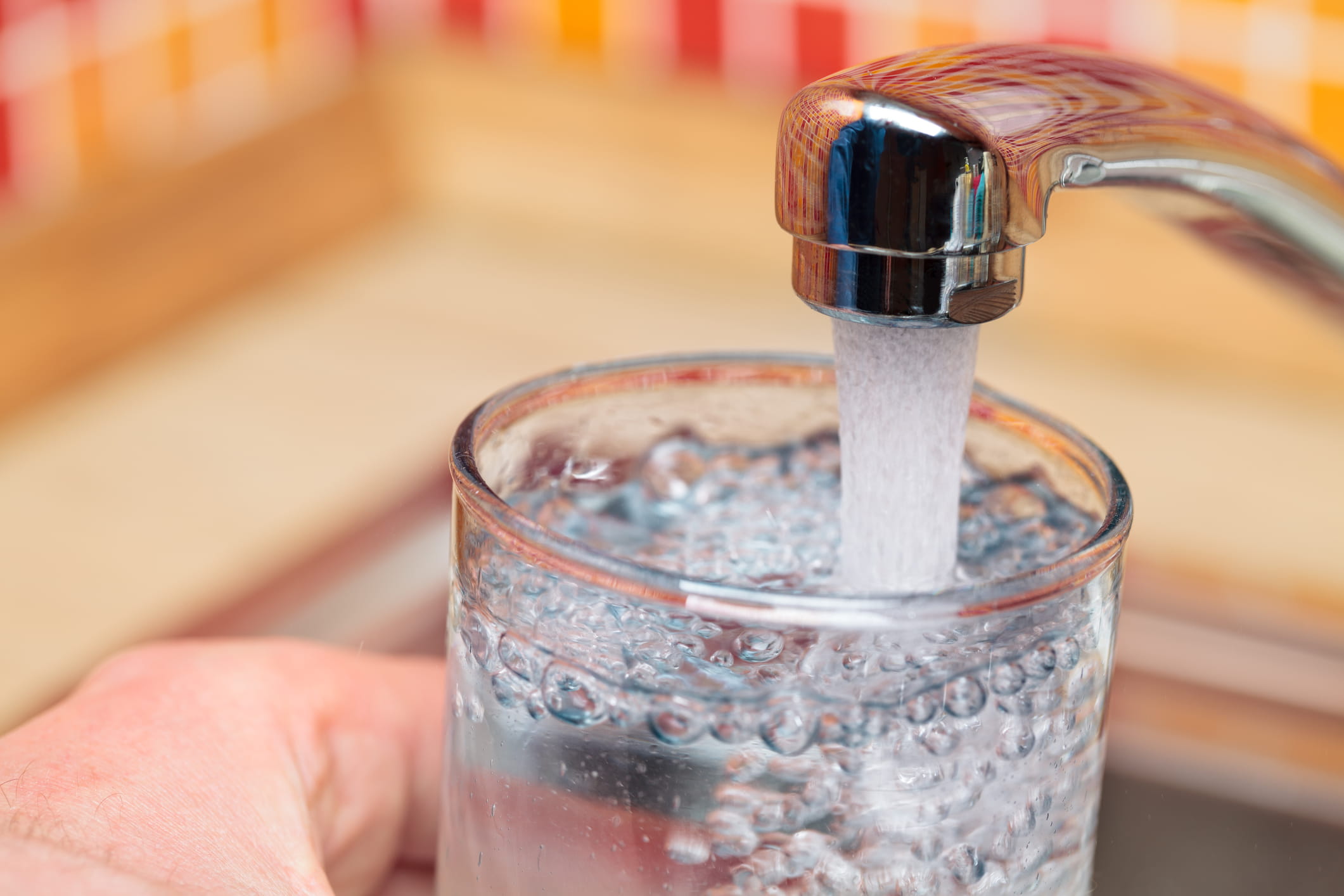What is water intoxication?

Year-round, we've been conditioned to hydrate, hydrate, hydrate. We drink water throughout the day and replenish with fluids after being in the sun or playing sports. And this is great — our bodies are 45-60% total water and hydration is essential for our bodies to thrive. But, in rare instances, it's actually quite possible to drink too much water.
Understanding the benefits of hydration, and when it can become dangerous, is important to avoid water intoxication.
What are the benefits of hydration?
You should aim to drink at least 64 ounces of water each day. Caffeinated beverages don't count towards your hydration, so you should try to limit these to no more than one or two cups each day.
"Consider getting a water bottle that helps you easily reach your hydration goals. You can get a 32-ounce bottle, one that has time goals to reach or even one that lights up to remind you to drink," says Jamie O'Boyle, RD, a registered dietitian at Main Line Health.
You can also add fruit or cucumbers to water for a flavor boost and use a straw to increase your water intake.
Benefits of hydration include:
- Delivering oxygen: Hydration helps your heart to pump blood more easily and allows oxygen to reach your muscles.
- Skin health: Without proper hydration, skin is duller, and more wrinkles and pores are visible. Hydration helps the skin to be plumper and improves elasticity.
- Digestion: Your bowels need water to move waste through your body. Dehydration can lead to constipation and digestive problems.
- Weight loss: You can replace sugar or artificially sweetened beverages with water to reduce unnecessary calories. Our bodies can mask thirst as hunger, so try drinking a glass of water if you feel inclined to snack.
How much is too much water?
With water, there can be too much of a good thing. According to the American Chemical Society, an example of a water "overdose" would be six liters per 165-pounds.
When water is consumed quickly and excessively, it dilutes sodium in the blood. Sodium is an electrolyte that helps maintain a balance of fluids within and outside the cells. An extreme loss of sodium can lead to a condition called hyponatremia, or water intoxication, in which fluid builds up inside the cells causing them to swell. In brain cells, this can be particularly dangerous and life-threatening. If left unchecked, hyponatremia can lead to coma, brain damage, even death.
Water intoxication symptoms can include:
- Confusion
- Dizziness
- Headache
- Nausea
- Vomiting
Because water intoxication symptoms are similar to symptoms of dehydration, the condition may go unrecognized or a person may be encouraged to drink more fluids.
"While it's not something we see very often, water intoxication is a dangerous medical condition. It's largely preventable — and treatable — but it's important to get emergency care before permanent damage is done," says O'Boyle.
Causes of drinking too much water
There have been a number of highly publicized events in which people have died from drinking too much water. Although it's very difficult to consume that much water that quickly, there are certain people who may be more at risk of rapid overconsumption of water, such as:
- Marathon runners (or any endurance athletes)
- Recreational drug use
- Soldiers engaged in military training
- People with schizophrenia (thirst is common side effect of certain medications)
- People with eating disorders
"In the case of sports endurance activities, athletes are commonly advised to replenish fluids lost through sweating and physical exertion," says O'Boyle.
A wise approach for runners and anyone gauging their intake of liquid is simply to "drink to thirst" and follow the American College of Sports Medicine guidelines suggested below.
Next steps:
Learn more about Jamie O'Boyle, RD
Learn more about Main Line Health's Comprehensive Weight and Wellness Program
Simple ways you can start breaking free from emotional eating
 Content you want, delivered to your inbox
Content you want, delivered to your inbox
Want to get the latest health and wellness articles delivered right to your inbox?
Subscribe to the Well Ahead Newsletter.
